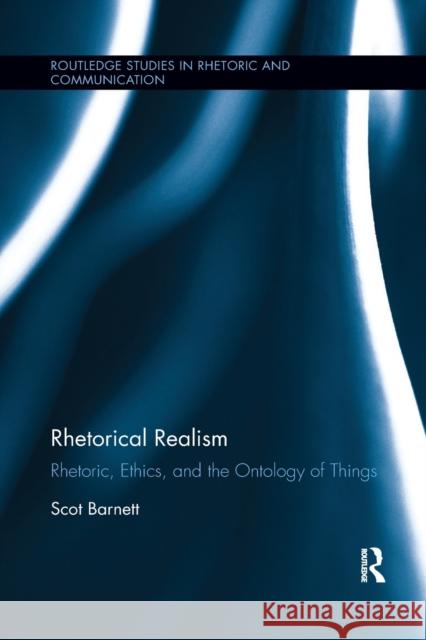Rhetorical Realism: Rhetoric, Ethics, and the Ontology of Things » książka
topmenu
Rhetorical Realism: Rhetoric, Ethics, and the Ontology of Things
ISBN-13: 9780367877644 / Angielski / Miękka / 2019 / 228 str.
Rhetorical Realism: Rhetoric, Ethics, and the Ontology of Things
ISBN-13: 9780367877644 / Angielski / Miękka / 2019 / 228 str.
cena 224,78
(netto: 214,08 VAT: 5%)
Najniższa cena z 30 dni: 196,40
(netto: 214,08 VAT: 5%)
Najniższa cena z 30 dni: 196,40
Termin realizacji zamówienia:
ok. 16-18 dni roboczych.
ok. 16-18 dni roboczych.
Darmowa dostawa!
This book explores the importance of realism in the history and theory of rhetoric.











